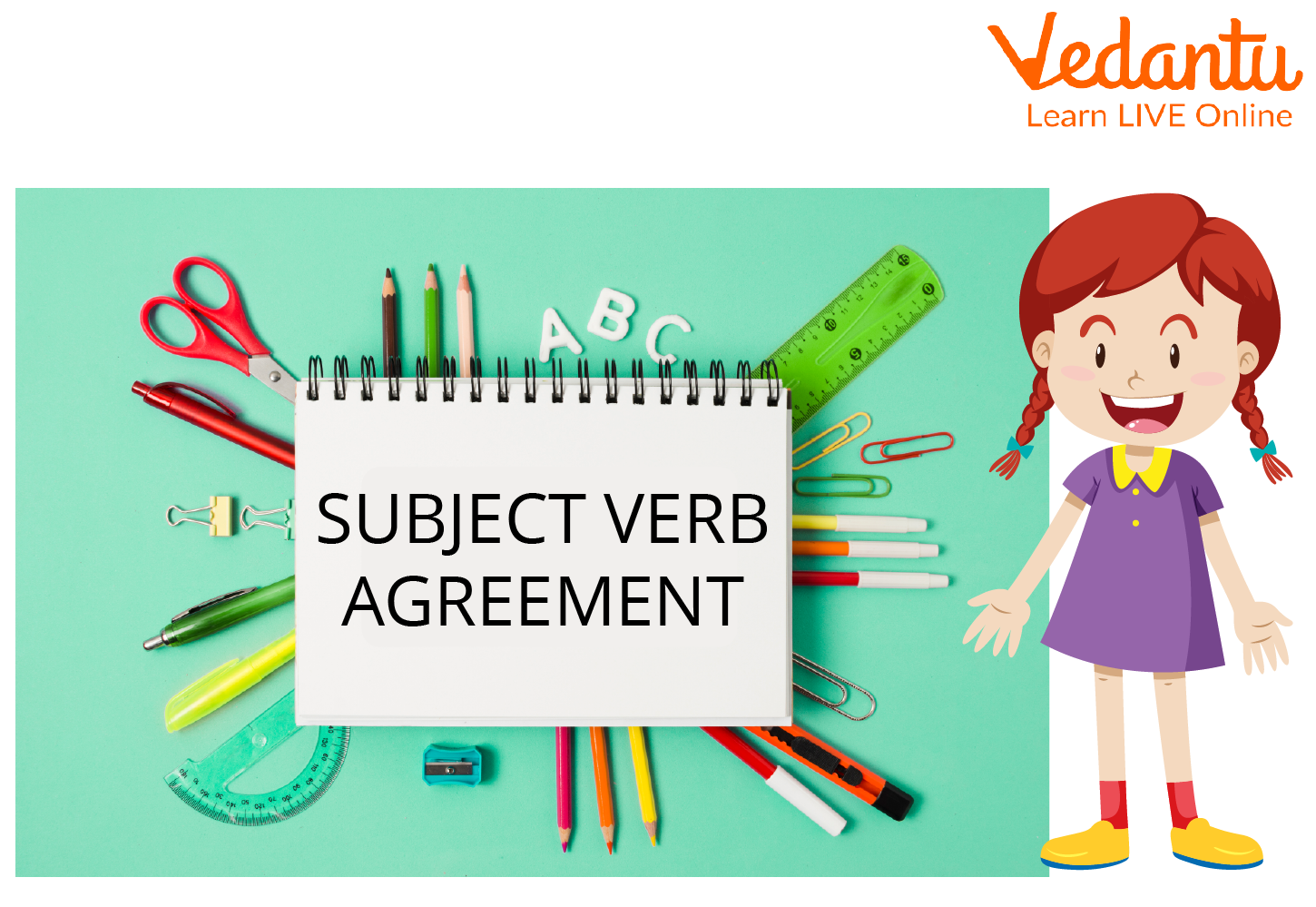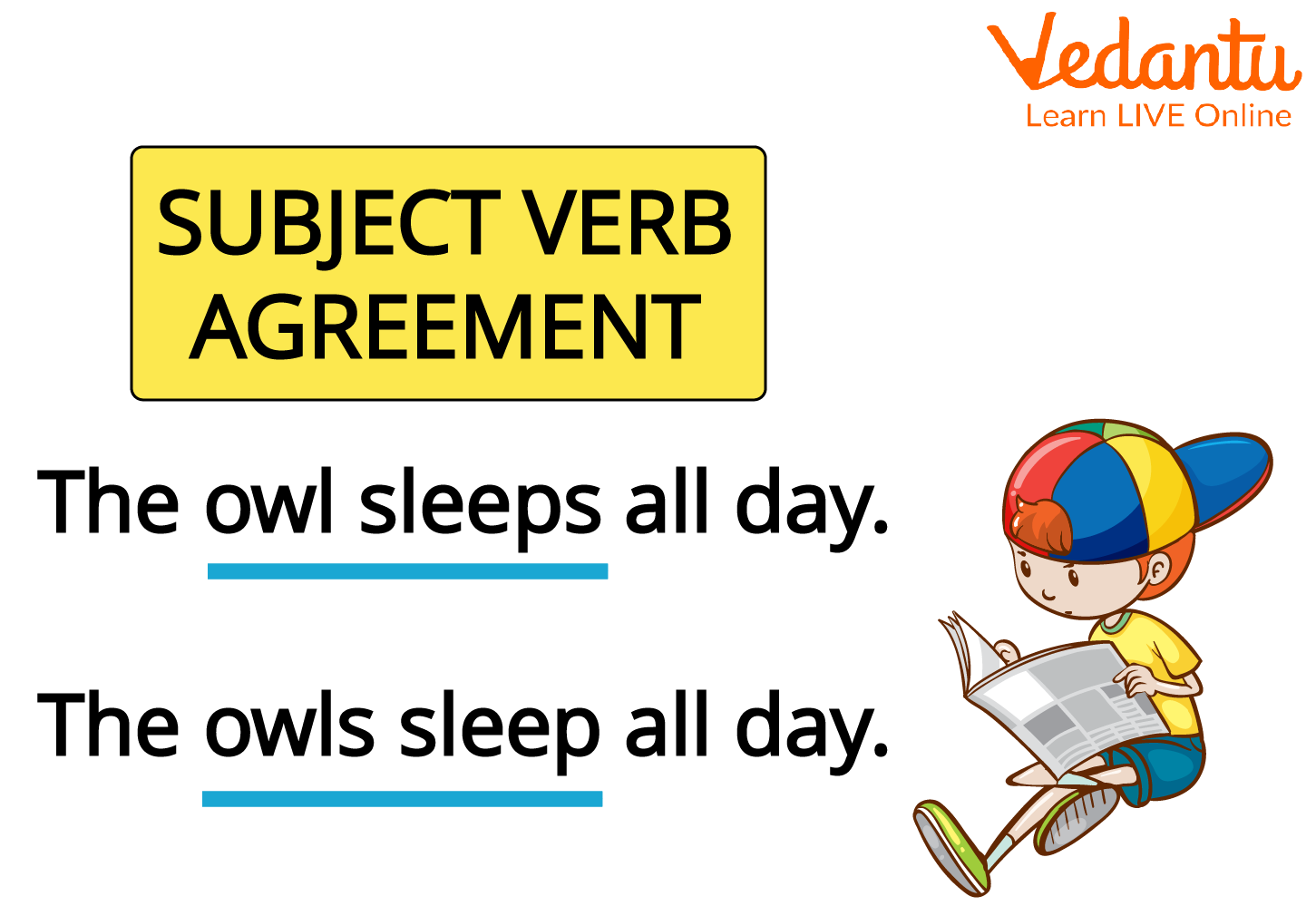Class 8 English Grammar Agreement of Verb and Subject Explained (2025-26)
FAQs on Class 8 English Grammar Agreement of Verb and Subject Explained (2025-26)
1. Where can I find reliable, step-by-step NCERT Solutions for Class 8 English Grammar, specifically for the 'Agreement of Verb and Subject' topic?
Vedantu provides expert-verified NCERT Solutions for Class 8 English Grammar, including detailed exercises for 'Agreement of Verb and Subject'. Our solutions are structured to follow the CBSE 2025-26 curriculum, offering a clear, step-by-step method to help you solve every question accurately and understand the underlying rules.
2. What is the fundamental method to solve any NCERT question on Subject-Verb Agreement?
The correct method involves three simple steps:
- First, identify the true subject of the sentence.
- Second, determine if the subject is singular or plural.
- Finally, choose the verb form that correctly agrees with the subject's number.
3. How do I solve questions where two subjects are joined by 'and'?
As a general rule, when two or more subjects are joined by the conjunction 'and', they form a compound subject and require a plural verb. For example, in the sentence 'Rahul and his friends are going to the park,' the verb 'are' is plural. However, watch out for pairs that express a single idea, like 'Bread and butter is my breakfast,' which takes a singular verb.
4. What is the correct method for choosing a verb when subjects are joined by 'or' or 'nor'?
For subjects connected by 'or' or 'nor', the verb must agree with the subject that is closest to it. This is known as the rule of proximity. For example: 'Neither the teacher nor the students were present.' Here, 'students' is the closest subject, and it is plural, so we use 'were'.
5. Why do collective nouns like 'team' or 'family' sometimes take a singular verb and sometimes a plural verb in NCERT exercises?
This depends on the context. A collective noun takes a singular verb when the group is considered a single, unified entity (e.g., 'The team is playing well.'). It takes a plural verb when the members of the group are acting as individuals (e.g., 'The team are arguing among themselves.'). The key is to analyse how the subject is functioning in the sentence to select the correct verb.
6. How do I avoid the common mistake of matching the verb to a noun in a phrase that comes between the subject and verb?
This is a common trap. To solve this correctly, you must mentally ignore the prepositional phrase that separates the subject from the verb. For instance, in 'The box of chocolates is on the table,' the subject is 'box' (singular), not 'chocolates' (plural). Always find the true subject first before choosing the verb.
7. Why do indefinite pronouns like 'each', 'everyone', and 'nobody' always take a singular verb?
Indefinite pronouns like 'each', 'everybody', 'anyone', 'neither', and 'no one' are treated as singular subjects. They refer to one person or thing at a time from a larger group. Therefore, the correct method as per NCERT guidelines is to always pair them with a singular verb. For example, 'Each of the students is responsible for their work.'
8. Beyond just getting the answers right, how does using a step-by-step solution for Subject-Verb Agreement help in exams?
Using a step-by-step solving method does more than just give you the correct answer. It helps you internalise the logical reasoning behind grammar rules. This improves your ability to construct grammatically correct sentences in your own writing for exams, ensuring you don't lose marks for structural errors in descriptive answers or essays. It builds a strong foundation for overall language proficiency.



























